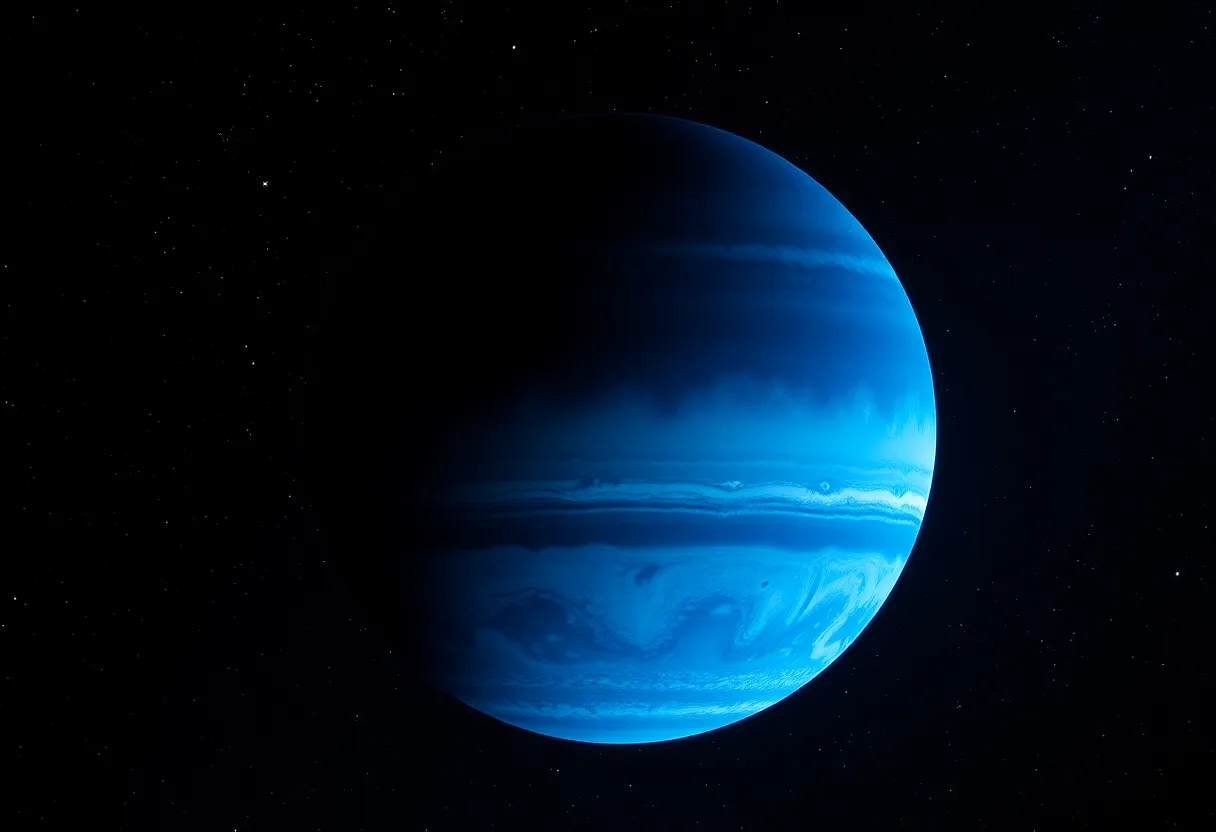News Summary
A recent study has revealed that Uranus emits about 12.5% more heat than it receives from the Sun, challenging previous theories about its thermal dynamics. Led by scientists from the University of Michigan and the University of Oxford, the research indicates that this heat likely stems from the planet’s formation, presenting vital insights into its internal processes. With comparisons to other gas giants in our solar system, this discovery prompts further investigation into Uranus’s atmosphere and potential exploratory missions.
Ann Arbor, Michigan – A groundbreaking study has revealed that Uranus emits approximately 12.5% more heat than it receives from the Sun, challenging long-held theories about the planet’s heat dynamics. This conclusion was reached by two independent scientific teams and resolves a mystery that originated from data obtained via Voyager 2 during its flyby in 1986.
Previously, researchers believed that Uranus did not emit excess heat, which contradicted findings for other gas giants in our solar system. The new assessment indicates that Uranus continues to release residual heat from its formation, providing critical insights into the planet’s internal processes and evolutionary history. This discovery is significant as it suggests that earlier perceptions of Uranus’s thermal state may have been incorrect.
The study was led by planetary scientist Xinyue Wang, who is based at the University of Michigan in Ann Arbor, and it corroborates earlier findings from another research effort led by Patrick Irwin from the University of Oxford, published earlier this year. Both studies utilized advanced computer models alongside decades of observational data from various ground-based and space telescopes to re-evaluate Uranus’s energy balance.
Key Findings Collaborative Efforts
The convergence of results from Wang’s and Irwin’s teams indicates a systemic approach to understanding Uranus’s thermal emissions and raises important questions for future research. Before this analysis, scientists speculated that the measurements obtained by Voyager 2 could have been influenced by elevated solar activity at the time of the flyby, leading to potential inaccuracies in the assessment of Uranus’s heat emission.
Comparative Thermal Emissions of Gas Giants
When comparing the heat emissions across the giant planets in our solar system, Uranus stands out by emitting significantly less heat than its counterparts. For instance, Jupiter emits 113% more heat, Saturn releases 139%, and Neptune emits 162%. Despite being closer to the Sun than Neptune, Uranus’s lower thermal output raises questions about its internal structure and unique evolutionary path.
The Role of Future Research
Understanding Uranus’s internal heat is crucial as it may shed light on the origins and evolution of the planet. Wang noted that gaining insight into Uranus could offer critical perspectives on the atmospheres and internal processes of similar exoplanets, many of which share comparable sizes with Uranus. The research reinforces the necessity for future exploratory missions to Uranus to address remaining uncertainties surrounding this ice giant.
Significance of the Research
The findings from the recent studies have been published in the journal Geophysical Research Letters. Both teams emphasize the importance of continued investigation into Uranus’s complex atmospheric dynamics. As our understanding of the planet grows, it may significantly enhance scientists’ knowledge of planetary atmospheres across the universe, potentially influencing future space exploration priorities.
Conclusion
The discovery that Uranus emits more heat than previously thought opens new avenues for scientific inquiry. It prompts reevaluation of assumptions regarding planetary thermal dynamics within our solar system and beyond. As interest in Uranus rekindles, the promise of future missions and advanced studies offers a tantalizing look at uncovering the secrets of this enigmatic ice giant.
Deeper Dive: News & Info About This Topic
HERE Resources
Additional Resources
- Science Alert: Confirmed, Uranus Really Is Hotter Than It Has Any Right to Be
- NDTV: New Study Reveals Uranus Generates Its Own Internal Heat
- Universe Magazine: Not So Cold: Uranus Is Warmer Than Scientists Thought
- Encyclopedia Britannica: Uranus
- Gadgets 360: Uranus Found Emitting Internal Heat Reviving Hopes for Flagship NASA Mission
- Google Search: Uranus internal heat
Author: STAFF HERE HOUSTON TX WRITER
The HOUSTON STAFF WRITER represents the experienced team at HEREHouston.com, your go-to source for actionable local news and information in Houston, Harris County, and beyond. Specializing in "news you can use," we cover essential topics like product reviews for personal and business needs, local business directories, politics, real estate trends, neighborhood insights, and state news affecting the area—with deep expertise drawn from years of dedicated reporting and strong community input, including local press releases and business updates. We deliver top reporting on high-value events such as Houston Livestock Show and Rodeo, Art Car Parade, and Chevron Houston Marathon. Our coverage extends to key organizations like the Greater Houston Partnership and Houston Area Urban League, plus leading businesses in energy and healthcare that power the local economy such as ExxonMobil, Schlumberger, and Houston Methodist. As part of the broader HERE network, including HEREAustinTX.com, HERECollegeStation.com, HEREDallas.com, and HERESanAntonio.com, we provide comprehensive, credible insights into Texas's dynamic landscape.





